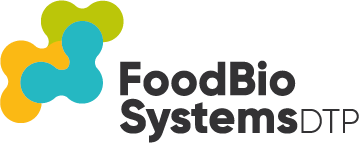Doctoral researchers at Cranfield University

Shaif Abakah
2021-25 cohort
Project title: Understanding seed longevity in weeds and developing non-destructive testing methods for assessing and monitoring seed quality during storage
Co-supervising University: Aberystwyth University
I have a CASE studentship and the project is also supported by an agriculture company.
What is your project about?
I’m investigating the factors that enable seeds, especially weed seeds, to stay longer in the soil and seed banks (i.e. during storage) and developing non destructive methods to monitor seed vigour and quality.
What led you to doing a PhD with the FoodBioSystems DTP?
I want to acquire the training necessary to be an independent researcher and to be an expert in my chosen study area. The DTP offers lots of training opportunities. It is linked to the industry to solve real industrial challenges and problems.

Paul Chaibva
2023-27 cohort
Project title: Breaking new ground: using X-rays to study how roots penetrate through soil parent materials
Co-supervising University: The University of Reading. My project is also supported by Diamond Light Source (Pvt). Ltd
What is your project about?
Soils in the UK are thinning away due to many factors, including soil erosion. This brings us closer to the soil’s parent material underneath. The project aims to study and understand how roots penetrate and grow in soil parent material, and the knowledge will give us the ability to select the next generation of resilient crops that can grow sustainably in degraded soils.
What have you enjoyed most about DTP training so far?
I have enjoyed world-class, hands-on plant and soil science training at Cranfield University and the University of Reading. Extensive X-ray CT training at Diamond Light Source (Pvt) Ltd, Cranfield University, and the University of Southampton. Endless opportunities to interact and network with staff and students from other partner institutions.
What challenges have you met so far in your project? And how did you overcome them?
My initial challenge was handling four supervisors from different institutes who have different expertise. It was quite overwhelming at first, but I have mastered how to juggle by understanding their expectations and blocking my work accordingly.
What are you looking forward to doing next in your project?
I am looking forward to a one-year internship at Diamond Light Source (Pvt) Ltd, a project partner, the largest synchrotron x-ray centre in the UK, and completing two of my research objectives there.

Sophie Dodd
2021-25 cohort
Project title: Honey authentication using intrinsic DNA markers and metabolic fingerprint
Co-supervising University: Queen’s University of Belfast
What is your project about?
Honey is among the top ten foods most likely to be adulterated, and reliable authentication methods are needed, particularly as the demand for premium honey is increasing. In the UK heather honey is one of the most important monofloral honeys produced, my project aims to identify unique biomarkers in heather and combine with markers for common sugar syrup adulterants to determine floral sources and detect sugar dilution in honey samples. Additionally the bioactivity of heather honey will be assessed.
What led you to doing a PhD?
During my BSc I had the opportunity to complete an internship at a food safety institute where I worked as a research assistant on a variety of interesting projects. Working alongside PhD students and academics made me realise that this was a career path that I could see for myself, and sparked my interest in the food safety industry. I applied for a MSc to improve my knowledge of the subject and continued to search for PhDs alongside my job search. Luckily I came across this project which was a perfect fit for my background and interests.
Why did you chose the FoodBioSystems DTP over other PhD opportunities?
FoodBioSystems gives the opportunity to work across two university partners, meaning you can combine expertise across institutes and have access to different facilities thereby enriching your project and making it more unique. You also have the opportunity to learn about other projects in different areas across food networks, with access to a network of people with a wide range of skills and knowledge.
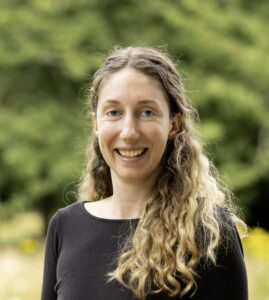
Harriet Gold
2022-26 cohort
Project title: Optimizing UK landscapes for agroecosystem resilience
Co-supervising University: University of Reading Industry Partner: Syngenta
Why is your project important to or how is it relevant to the UK food system?
Animal populations play important roles in multiple agroecosystem functions (e.g. soil structure, pollination, biological pest control), but can decline drastically in response to agricultural management practices and landscape fragmentation, posing an existential threat to food security. This project will develop a landscape-scale model to predict the effects of multiple agroecosystem scenarios, interventions and environmental changes on several key bioindicator species, supporting agricultural management and policy aimed at increased agroecosystem resilience.
What have you enjoyed most about DTP training so far?
The chance to interact with students from multiple cohorts at the summer school provided a lot of encouragement, motivation and inspiration.
What are you looking forward to doing next in your project?
I’m looking forward to moving on from the initial stages of literature review and research and getting stuck into developing new skills while progressing with the objectives of my project.

Zahra Karimi
2023-27 cohort
Project title: Food Authenticity: Targeted and untargeted DNA barcoding approaches for traceability of cross-contamination and adulteration in animal and plant-based foods
Co-supervising University: Queen’s University Belfast
Why is your project important to or how is it relevant to the UK food system?
The aim of this project is to explore the potential of DNA barcoding and metabarcoding approaches to uncover the composition of food products and detect intentional/unintentional food adulteration, or cross-contamination with other species during processing.
The findings of this project have the potential to enhance food safety and authenticity standards in the UK, supporting regulatory enforcement and strengthening consumer confidence in the food supply chain.
What have you enjoyed most about DTP training so far?
I especially enjoy the DTP monthly seminars, where we share updates on our food-related projects. It’s a great opportunity for networking and collaboration.
What are you looking forward to doing next in your project?
I mostly enjoy the novelty of my project and its direct impact on food safety and quality. It combines both wet lab and dry lab approaches, where I use molecular biology methods alongside bioinformatics pipelines to analyze the complete DNA-based composition of food—making it a truly fascinating project.
At the next step, I would like to publish my results in a journal and present them at a Food Authenticity conference.
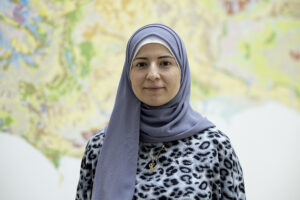
Mariam Kourani
2020-24 cohort
Project title: Evaluating transcriptomic and metabolomic adaptations to climate change in Brassica napus (oilseed rape)
Co-supervised at: University of Reading
What is your project about and why is it relevant to the UK food system?
As a result of climate change, over the past few years we have witnessed heat wave events, across the UK, which represent a serious threat to agriculture. Oilseed rape is an economically important crop for the UK. Higher temperature pre- and during flowering reduces pollen fertility, and also can have severe impact on seed moisture – which in turn causes deterioration in the quality of oil content and composition. My project aims to provide a systems-level understanding of the impact of heat stress on yield and seed development of oilseed rape for UK-specific varieties.
What have you enjoyed most about your DTP training so far?
I have enjoyed the variety of topics that DTP training has provide so far. The regular webinars have exposed me to a wealth of knowledge through listening to the talks of fellow PhD students and to guest speakers from both academia and industry.
What challenges have you met so far in your project?
During the pandemic, it was difficult to obtain laboratory reagents and consumables as these materials were in shortage nationwide. This resulted in some delays in my experimental work. With my supervisory team’s agreement, I was able to share some lab consumables between the host and co-supervising university which helped to keep the work on track. Another challenge was not being able to meet face to face with other DTP students or to attend face to face events to share thoughts and network with people in the field. This was replaced with regular online events and our group also very kindly set up a regular online coffee meeting to socialise and talk about life.

Katherine Modos
2021-2029 (part-time registration)
Project title: Manipulation of oxygen-dependent ethylene signalling in fruit to reduce food loss and extend storage and shelf-life.
Co-supervising University: Aberystwyth University
This is a CASE studentship and the project is supported by a food retailer
What is your project about?
Historically, controlled atmosphere strategies have been successful in reducing metabolic activity and ultimately slowing down senescence on postharvest life. With the innovative system of graduated controlled atmosphere it seems to replicate this effect by using gradual changes to storage conditions, instead of sudden changes, which have shown to have less negative impact with reduced decay incidence in fruits and vegetables.
What led you to doing a PhD?
My ambition as a food professional is to be able to influence with positive change and to drive the industry towards best practice. Taking part in this project gives something back not just to the industry but also to the world, as it has the potential to reduce food waste and improve sustainable production.
Why did you chose the FoodBioSystems DTP over other PhD opportunities?
FoodBioSystems DTP has more to offer than a standard PhD course. It provides an opportunity to engage with more universities and specialists, provides further training, further networking opportunities and also better support to ensure you are on the right path to achieving what you set out to do. A real warm embrace of support.
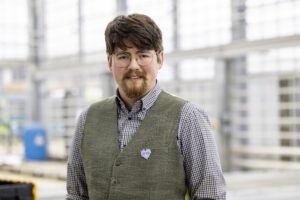
John Nunns
2021-25 cohort
Project title: Improving Pesticide degradation studies: maintaining soil structure, microbial functioning and rhizosphere effects to reflect natural conditions.
Co-supervising University: University of Reading
I have a CASE studentship and the project is also supported by an agriculture company
What is your project about?
Several industrial parties have observed a significant difference in the lifespan of pesticides in laboratory and field-testing environments. This project aims to explore the factors behind these differences, particularly focusing on the microbiology and the influence testing differences has on microbial life. Aspects such as the inclusion of plants and disruption by the soil preparation process will be investigated.
What led you to doing a PhD?
I developed an interest in researching soils in my BSc, enjoying the synthesis of new ideas. This continued through my MRes studies so I decided to pursue a career in research, leading me to apply for this PhD.
Why did you chose the FoodBioSystems DTP over other PhD opportunities?
My interests have always focused on creating ‘real-world’ solutions through research, so the industrial partnerships attracted me. The opportunity to share knowledge and work alongside another prestigious university besides the host was another factor that interested me.

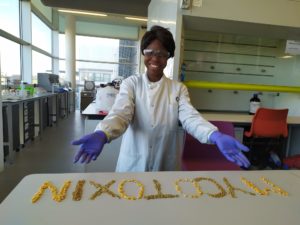
Abimbola Oluwakayode
2020-24 cohort
Project title: Developing a novel and effective Post Harvest Decision Support System for stored cereals to minimise mould spoilage and mycotoxins
Co-supervised at: Queen’s University Belfast
What is your project about and why is it relevant to the UK food system?
My project will help to minimise mycotoxins contamination in the storage of the four major cereal grains in the UK thereby improving human and animal’s health and reducing waste in the food supply chain.
What have you enjoyed most about your DTP training so far and what are you looking forward to doing next in your project?
The DTP training has been so educative and it connects students to other food organisations. The next thing I am looking forward to in my project is having an analytical instrumentation training.
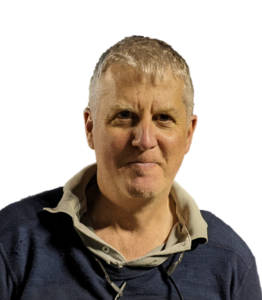
Thomas Smith
2024-28 cohort
Project title: Moving towards “Net Zero” Greenhouse Gas Emissions from Tea Production in Kenya
Industry Partner: LIPTON Teas and Infusions
What is your project about and why is it relevant to the UK food system?
Tea is by far the most popular drink consumed in Britain today, with over 100 million cups being drunk in the UK every single day. Tea crop’s environmental impact is relatively low, though there are opportunities to understand its impact on greenhouse gas emissions, for example from the use of nitrogen fertilizers. My research relates to understanding this environmental impact and finding opportunities to reduce greenhouse gas emissions from tea production.
What have you enjoyed most about your DTP training so far and what are you looking forward to doing next in your project?
The chance to broaden my learning across all of the partner networks, and attend learning sessions on different topics related to food production systems. In the next few months, I’ll be travelling to Kenya (where most of the UK’s tea comes from) to visit tea estates and undertake some field work measuring gas emissions and analysing soil.
What challenges have you met so far in your project? And how did you overcome them?
The hardest parts so far have been understanding the intricacies of the nitrogen and carbon cycles, and what processes are happening in the soil – there is a lot going on down there!

Fabian Villamil
2022-26 cohort
Project title: Predicting and understanding potato dormancy under interacting pre-harvest and postharvest conditions: a prerequisite for molecular breeding
Co-supervised at: Aberystwyth University Industry Partners: PepsiCo International Ltd. & Solynta
Why is your project important to or how is it relevant to the UK food system?
In the coming years, as global temperatures continue to rise, it becomes increasingly crucial to minimize food waste while preserving arable land. Understanding potato dormancy is integral to extending the shelf life of potatoes. I have enjoyed the interactive and imaginative training provided by the Walker Institute. They did a good job demonstrating how our role as researchers can fit into policy decisions concerning climate change at national and international levels.
What challenges have you met so far in your project?
Doing a PhD is an enriching experience. However, it comes with its own challenges, such as balancing social life and work, as well as identifying and addressing weaknesses. Nevertheless, I believe that good communication with one’s supervisor is crucial for overcoming these challenges.
What have you enjoyed most about DTP training so far?
I have enjoyed the connection with the industrial sector. As a scientist, it has been incredibly rewarding to work with companies. In line with this, I have also appreciated the placements I have done, as they provided me with insights into the differences between academia and the industrial sector.
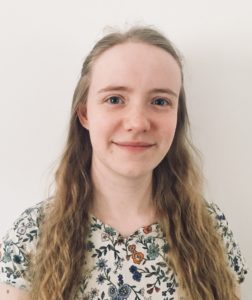
Heather Wickson
2020-24 cohort
Project title: Reducing Seed Loss and Waste in Umbelliferous Crops
Co-supervised at: University of Reading
This is a CASE studentship and the project is supported by a seed company.
What is your project about and why is it relevant to the UK food system?
Umbelliferae species (such as carrot, coriander and parsnip) flower and set seed over an extended period, leading to mixed seed maturity and quality at harvest. This project focuses on understanding the physical and genetic variation in flower and seed development within the parsnip breeding program at Elsoms Seeds Ltd.; with a view to identifying genetic markers associated with to improved seed production efficiency.
What have you enjoyed most about your DTP training so far?
It has been so interesting to meet and discuss research with fellow students across the Agrifood sector. This, along with systems-thinking training, has helped me understand better where my research sits in the wider food system context.
What are you looking forward to doing next?
So far my research has been largely field focussed, so I am looking forward to getting into the lab and getting to grips with the parsnip genome.
